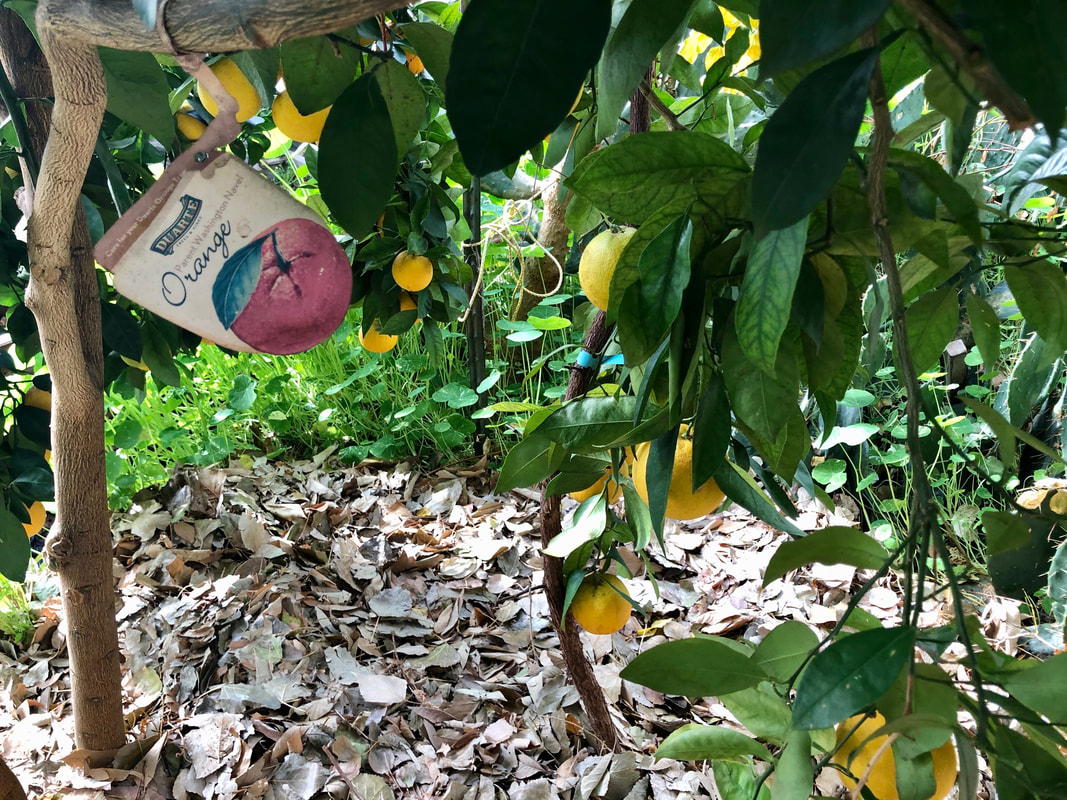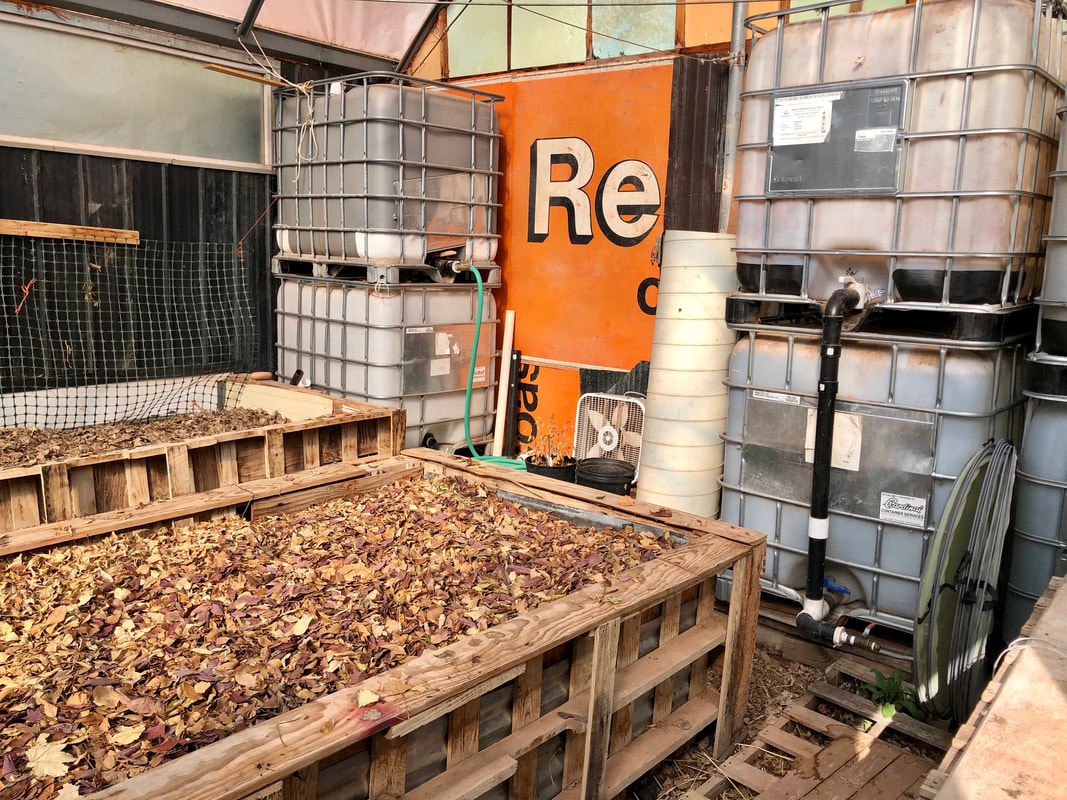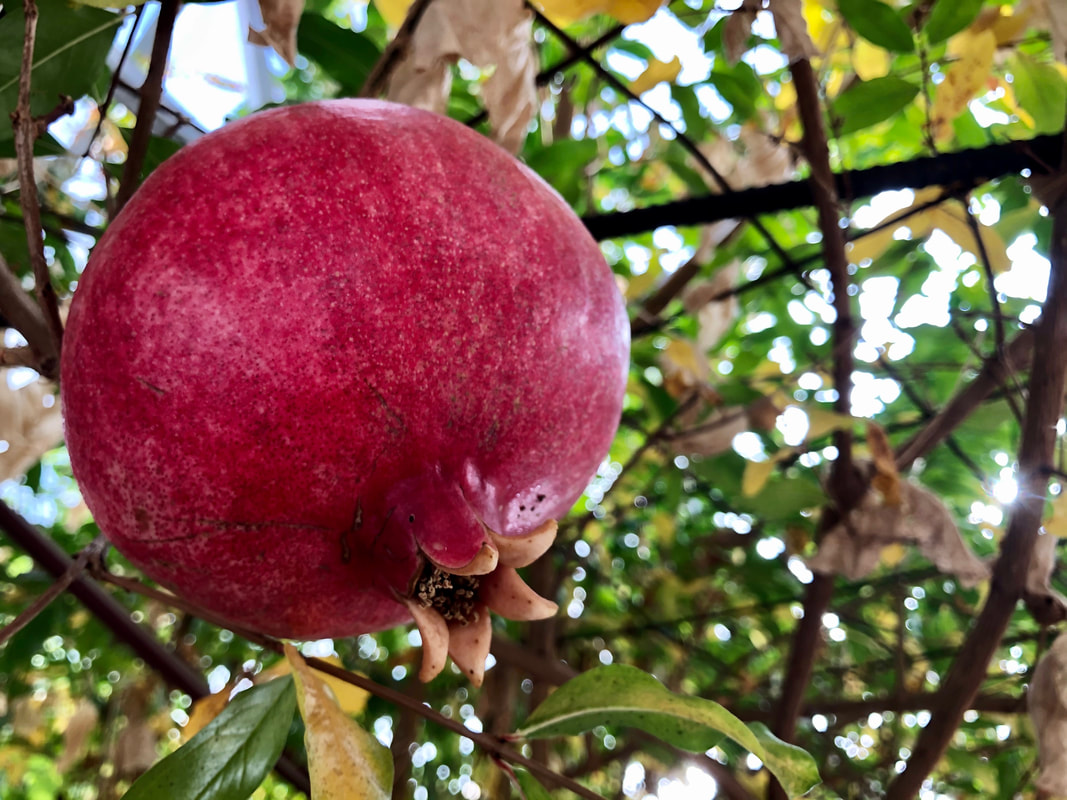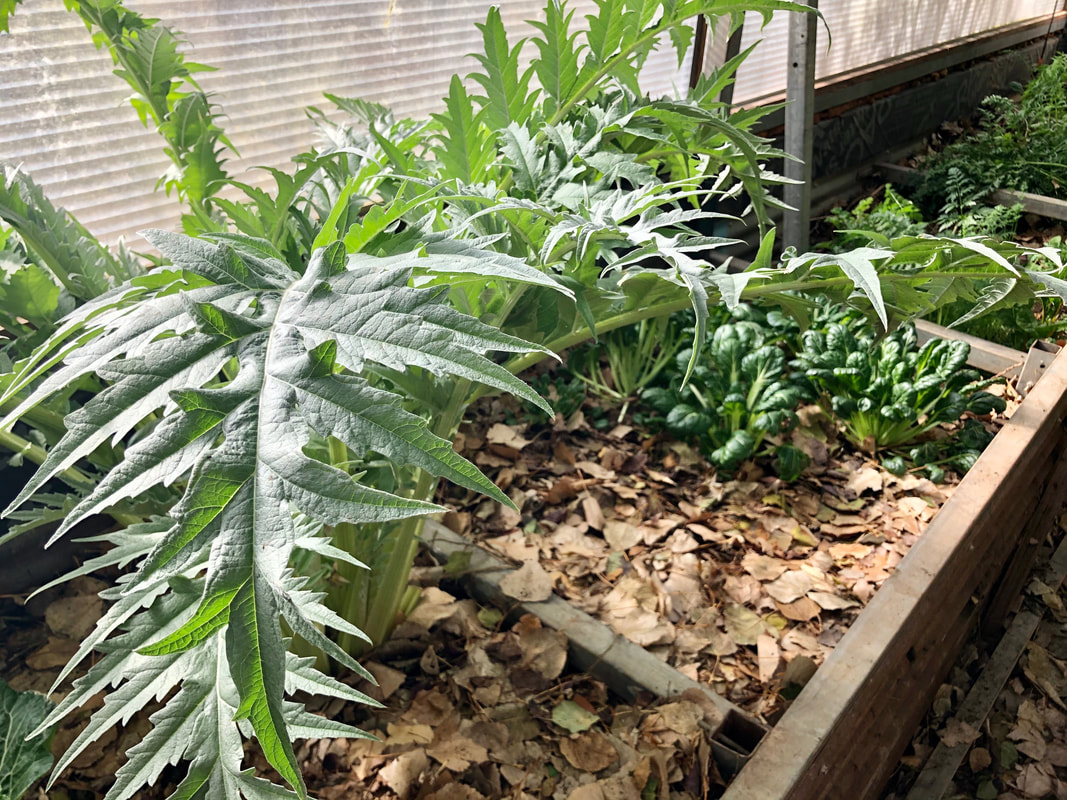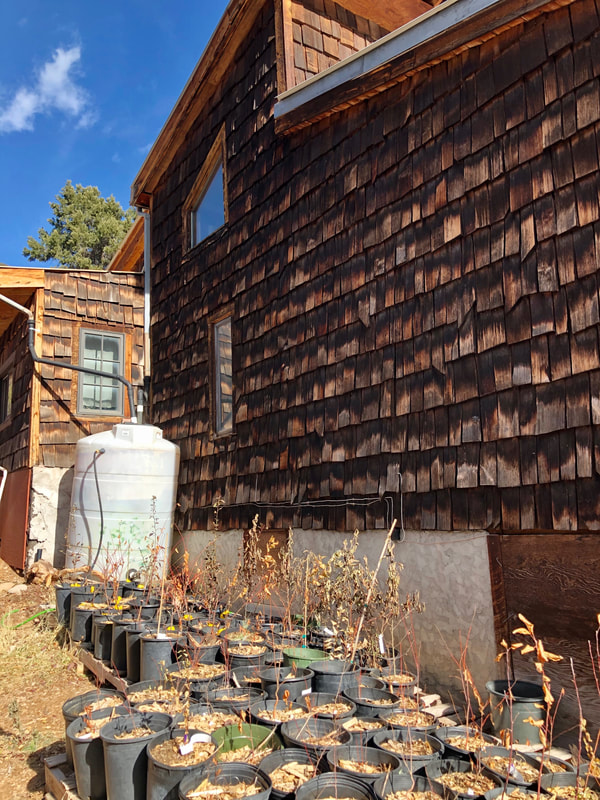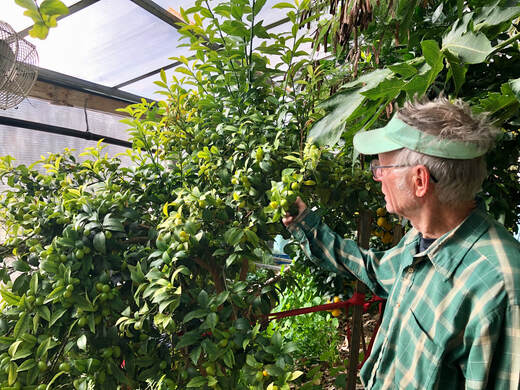
Jerome by Kumquat tree
Central Rocky Mountain Permaculture Institute
“If the origins of civilization are bound up with humanity’s expulsion from Eden, then surely the purpose of all our striving must be to regain the garden.”
– Jerome Ostentowski, The Forest Garden Greenhouse.
The Central Rocky Mountain Permaculture Institute (CRMPI), one of the oldest continually operating permaculture teaching sites in the U.S., boasts quite the garden. I visited Jerome Ostentowski at CRMPI last fall, where we walked and talked among 200 varieties of fruit trees and many more perennial edible shrubs and plants all thriving in and around his five greenhouses. The diversity is made possible in part because “each one of these greenhouses is unique. They all have their own climate and succession, soil building…so it’s a unique kind of experiment in carbon farming.”
Carbon farming involves “a suite of crops and agricultural practices that sequester carbon in the soil and in perennial vegetation like trees. If widely implemented, these practices have the capacity to sequester hundreds of billions of tons of carbon from the atmosphere in the coming decades” (E. Toensmeier The Carbon Farming Solution). Through sequestering and storing carbon in the soil, carbon farming is touted by many as a key tool in climate change mitigation and adaptation.
And Jerome is observing that “with climate change, everything is shifting faster.” These shifts are becoming hard to ignore, and many are seeking to be part of the solution by increasing their self-sufficiency and reshaping their relationships with each other and the natural environment.
Over 3,000 solution-seeking students and interns have participated in programs at CRMPI, many of whom are now influential permaculture designers and educators in their own right. In addition to 32-years of offering a Permaculture Design Certificate (PDC), around five years ago Jerome started The Academy, which is an eight-day program with two four-day modules covering greenhouses and forest gardening. CRMPI also offers various weekend workshops on the same topics.
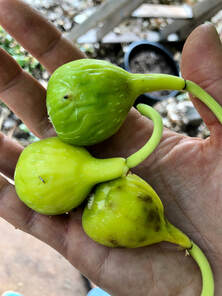
The site, tucked away on a steep, previously eroded slope above Basalt Colorado, wasn’t always a living experiment in carbon farming. “I tried to do gardening up here and I wasn’t able to do it…I didn’t have any framework.” With over 30 years of trial and error, our walk through CRMPI had me eying a paradise of gotu kola, pomegranate, Washington navel oranges, bananas, jasmine, scarlet runner beans, ginger, yacon, taro and countless other food and medicinal plants and trees. We sampled sweet figs and tangy kumquat as Jerome shared his mounting concerns about the permaculture movement, higher education, our societal structures, and climate change.
When asked about permaculture and its leaders, Jerome reflected a sense of competition, “it’s just business as usual. Every permaculture group is just dog-eat-dog…” As such an influential incubator site for permaculture educators around the county, I was surprised to hear this perspective. And yet, I can see how accumulated years of fighting city and county ordinances, large scale industrial agriculture, restrictive federal policies and more can wear any of us down.
Jerome also questions our societal structure, where people “follow the bouncing ball…and no one even questions it.” We explored “litter” as terminology for nutrient-rich leaf compost in people’s yards. This terminology, along with the broken paradigm of using a fossil-fueled-powered leaf blower, raking leaves into bags, driving a fossil-fuel-powered vehicle to drop leaves at the landfill, and mistakenly believing this as the best environmental practice to engage in (the landfill turns it into compost!) is one of many examples of degenerative patterns in our society. I am hopeful that we can shift these patterns – and with our temporarily clear skies as the planet takes a great pause – we see how quickly change can be enacted.
The dissonance between Jerome’s reflections about both the permaculture movement and our society as a whole and his beautiful oasis of a garden was hard to ignore. The interview had me thinking deeply about gratitude. About the active practice of appreciation upon waking up in the morning. About our self-talk and the choice we have each day to practice and radiate optimism.
I hope for our society and our planet. We have many problems/opportunities (propportunities) before us. And in this fight to reshape our relationships with each other and our planet, we must remember to take the time for self-healing and to reground. Perhaps then we can see the beauty right before us and effectively share the resulting bounty to better our society.
“We are shaped by our thoughts; we become what we think. When the mind is pure, joy follows like a shadow that never leaves.” — Buddha
To discover more about Jerome, visit CRMPI’s website at: https://crmpi.org/
Recent Posts


